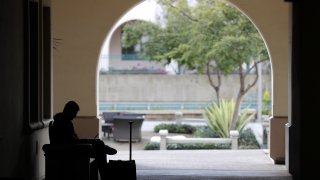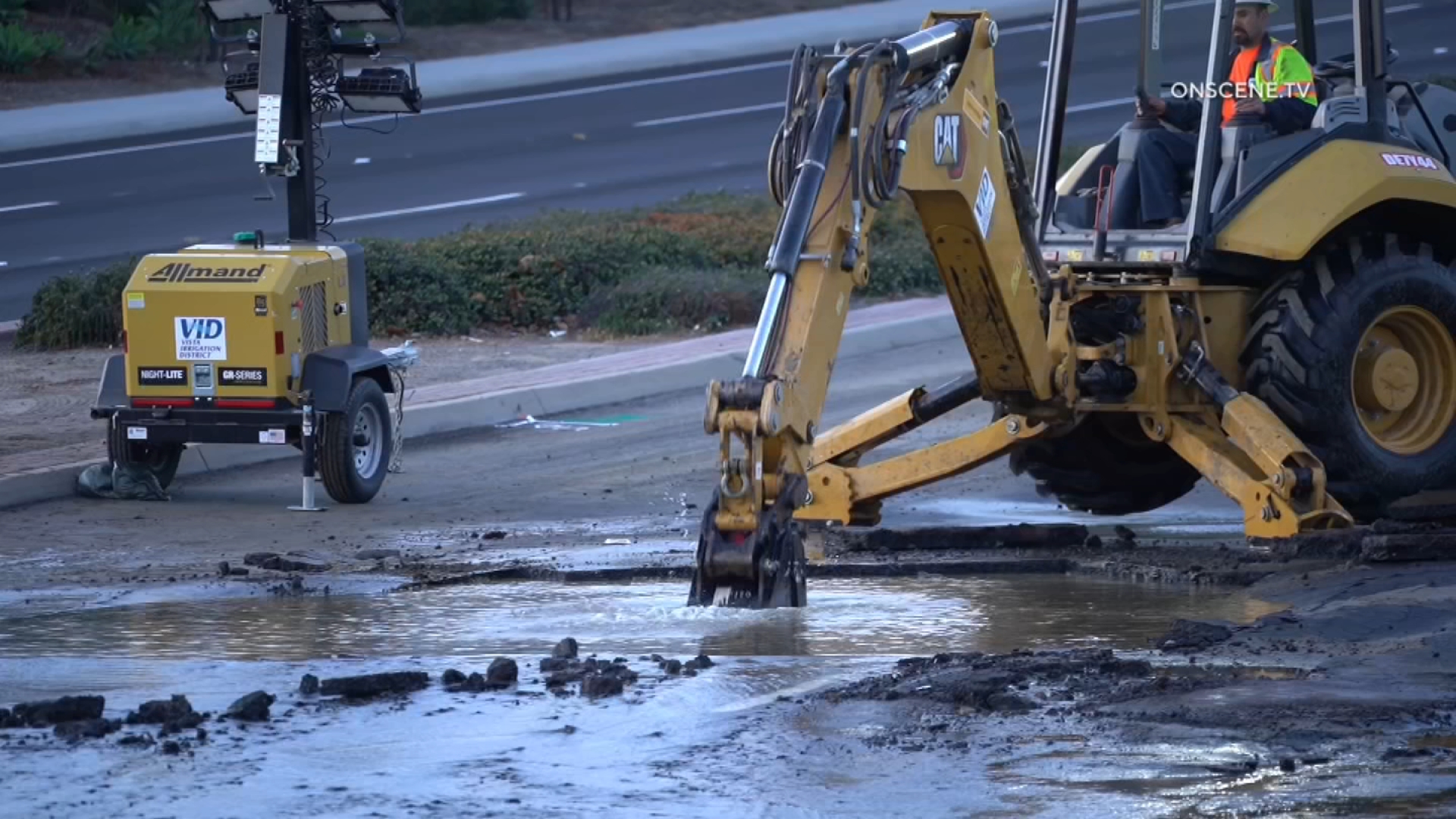
The University of San Diego is among 20 colleges that sued the federal government Monday in a bid to overturn a new visa policy that would deprive foreign students of their United States visas if their fall classes are held solely online.
The lawsuit, filed in U.S. District Court in Oregon, alleges that the new rules suddenly put thousands of international students "in dire straits."
"Those who are unable to enroll in in-person courses for the Fall face the threat of removal. They may be sent back to a country with little or no internet access, they may face new health or safety risks in that country, or they may not even have a home to go back to," the suit says. "Once expelled, they may never be able to reapply for or reenter the F-1 (student visa) program, thus permanently ending their post-secondary education."
According to the 36-page complaint, the U.S. Department of Homeland Security and U.S. Immigration and Customs Enforcement announced the new policy July 6 with no prior notice and with no indication that the government "considered how its action would impact the health of students, faculty, staff or surrounding communities."
ICE said in a statement last week that the U.S. Department of State would not issue visas "to students enrolled in schools and/or programs that are fully online for the fall semester nor will U.S. Customs and Border Protection permit these students to enter the United States."
In seeking a court order halting the policy, the plaintiffs allege that the ICE order is "contrary to law and arbitrary and capricious."
USD President James T. Harris III, said "this modification to the Student and Exchange Visitor Program (SEVP) will do irreparable harm to students, universities and our country. It also demonstrates a lack of regard for the remarkable contributions international students make to our campus community.
Their diversity, innovation and ingenuity make our academic environment stronger, and we would be challenged to fulfill our vision to set the standard as an engaged, contemporary Catholic university without them."
An additional statement from the campus says USD is "pursuing this case because all international students studying in this country deserve the right to continue their education without risk of deportation. Many of these students, in a sign of their determination and commitment, have stayed in the United States during this international health crisis to ensure their education was not interrupted by returning home and not being granted a visa to return."
Along with USD, plaintiffs include the University of Southern California, Pitzer, Scripps and Pomona colleges, the California Institute of Technology in Pasadena, Chapman University in Orange and Claremont McKenna College.
On Friday, attorneys for seven international university students studying in Orange and Los Angeles counties sued the Trump administration, alleging that new rules on foreign student visas makes them "pawns in a political drama." The federal civil complaint, filed in Santa Ana, seeks a court order preventing the government from enforcing the policy.
Because of the COVID-19 pandemic, universities across the nation began to shift to largely online classes in March to discourage bringing people together in a confined space.
At that time, international students were protected by guidance issued by the student visitor program, which kept non-immigrant student visas in compliance regardless of how their colleges managed the shift from in-person classes.
However, as California registers some of its highest new daily cases totals since the pandemic began, SEVP rolled back its exemptions from the spring, requiring students whose schools choose to conduct the fall 2020 term entirely online to leave the United States.
Also last week, the state of California sued the Trump administration over the new policy, and USC announced it would offer free in-person classes to help international students avoid being forced out of the country.
The lawsuit brought by California Attorney General Xavier Becerra, along with community and state college chancellors, contends the policy threatens to exacerbate the spread of COVID-19 by requiring international students to take classes in person, "putting themselves, teachers, other students and the community at large at risk of getting and spreading the coronavirus -- or be subject to deportation."
USC announced Thursday that international students who need to take an in-person class this fall to maintain their visa status and avoid being deported under the new policy will be able to enroll in the course at no cost.
USC previously announced plans to join an amicus brief supporting a lawsuit filed by Harvard University and the Massachusetts Institute of Technology challenging the ICE restriction.
The Harvard/MIT lawsuit, filed last Wednesday in the U.S. District Court for Massachusetts, asks the court to prevent ICE and the Department of Homeland Security from enforcing the new guidance and to declare it unlawful.



